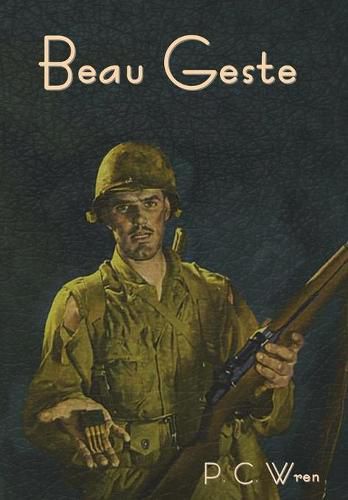Readings Newsletter
Become a Readings Member to make your shopping experience even easier.
Sign in or sign up for free!
You’re not far away from qualifying for FREE standard shipping within Australia
You’ve qualified for FREE standard shipping within Australia
The cart is loading…






This title is printed to order. This book may have been self-published. If so, we cannot guarantee the quality of the content. In the main most books will have gone through the editing process however some may not. We therefore suggest that you be aware of this before ordering this book. If in doubt check either the author or publisher’s details as we are unable to accept any returns unless they are faulty. Please contact us if you have any questions.
Beau Geste is a 1924 adventure novel by P. C. Wren. It has been adapted for the screen several times.
Michael Beau Geste is the protagonist. The main narrator (among others), by contrast, is his younger brother John. The three Geste brothers of Brandon Abbas are used as a metaphor for the British upper class values of a time gone by, and the decent thing to do is, in fact, the leitmotif of the novel.
$9.00 standard shipping within Australia
FREE standard shipping within Australia for orders over $100.00
Express & International shipping calculated at checkout
This title is printed to order. This book may have been self-published. If so, we cannot guarantee the quality of the content. In the main most books will have gone through the editing process however some may not. We therefore suggest that you be aware of this before ordering this book. If in doubt check either the author or publisher’s details as we are unable to accept any returns unless they are faulty. Please contact us if you have any questions.
Beau Geste is a 1924 adventure novel by P. C. Wren. It has been adapted for the screen several times.
Michael Beau Geste is the protagonist. The main narrator (among others), by contrast, is his younger brother John. The three Geste brothers of Brandon Abbas are used as a metaphor for the British upper class values of a time gone by, and the decent thing to do is, in fact, the leitmotif of the novel.